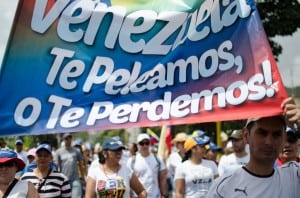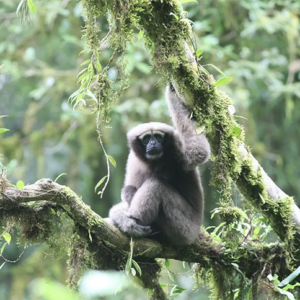
By: Sophie McAdam,
American foreign policy is far more dangerous than Socialism…
A brief history of American intervention
Earlier this month, it emerged that the U.S had created a ´Cuban Twitter´ in an attempt to stir social unrest and cause revolution in the communist country from the inside out. Incredibly, this was not a CIA operation, but rather ´a program paid for and run by the U.S Agency for International Development, best known for overseeing billions of dollars in U.S humanitarian aid.´ Aside from the obvious question (why is an aid organization carrying out a top-secret infiltration mission in Cuba?)- this news shouldn´t come as much of a surprise.
As far back as the 1950s, the CIA and British MI6 plotted to overthrow the government of newly-elected Mohamed Mossadegh, who had won a landslide victory in Iran and promised to nationalize the country´s oil, using the money to increase social wellbeing. Mossadegh was arrested for these ideals and replaced by a bloody dictatorship, whose CIA-trained security force would be condemned by Amnesty International in 1976 for having the ´worst human rights records on the planet.´
The Iranian coup d´etat was the first time America had paid so-called ´protesters´ to cause riots on the streets, but it wouldn´t be the last. The USA is the world´s self-styled bad cop: a role which involves disposing of any democratically elected governments which have the audacity to disagree with its neo-liberal capitalist view of the world. This is especially true, it seems, for those who dare to control their own oil and mineral reserves.
Central and Latin American countries have long been a problem for the U.S. After Iran, sophisticated propaganda campaigns were launched at home to convince the American public that various social democracies posed a communist problem. In reality, these countries had no ties to Soviet Russia, but the illusionary Red threat to U.S ´freedom´was enough to gather public support for the ensuing interventions: the next took place in Guatemala in 1954, setting a precedent for American foreign policy in the region right up until the present day.
Illustrating the extent and pre-planning of U.S-led coups against these democratic, socialist countries back in 1981, US secretary of state Alexander Haig declared on camera: “What we are watching here is a four-phased operation. Phase 1 has been completed- that was the seizure of Nicaragua. Next is El Salvador, to be followed by Honduras and Guatemala.” (Note: this was a reference to the U.S´s second coup in the country, taking place in 1982). Haig adds, “It´s clear and explicit…I would call it a hit list, for the takeover of Central America.”
The Pentagon´s sinister plan was carried out successfully: The U.S overthrew governments in all these countries and more, replacing elected leaders with military dictators or terrorist groups that would bring decades of horror of bloodshed to these nations. The USA even has a special military facility (SOA) to train Latin American soldiers. According to an investigation by Truthdig, “The SOA has trained more than 60,000 soldiers, many of whom have returned home and committed human rights abuses, torture, extrajudicial execution and massacres.”
Perhaps the most famous and terrible of these interventions was the 1973 Chilean coup, where popular socialist leader Salvador Allende was ousted in a U.S-backed operation by General Augusto Pinochet. He would go on to head one of the most vile military regimes in history, with millions murdered, tortured and exiled.
Several military interventions in Haiti, Brazil, and the invasion of the tiny island of Grenada in 1983 were also devastating for the region. Africa wasn´t left out, either: the landslide election win of social democrat Patrice Lumumba in the Congo threatened U.S control of the country´s vast mineral wealth. With a word, Einsenhower ordered the new people´s champion ´eliminated´, and Lumumba was tied up and executed on camera In 1971.
Venezuela: the thorn in America´s side
This time, Washington´s focus is on Venezuela, the most violent country in South America. Inflation is high, and so is crime- at least in part due to huge wealth inequality, class and racial division. Basic groceries like sugar, milk and toilet paper are in short supply, a problem so grave that electronic rationing cards have been issued to each family. Prices spiked after Venezuela cut the supply of dollars to the private sector, which dominates food imports and supply. But despite this, the economy has continued to grow and unemployment and poverty fall.
There is no denying that Venezuela has its problems, but by the same token it´s impossible to deny the social achievements made since Hugo Chávez was swept to power in 1998, declaring the Bolivarian Revolution and drawing up a new constitution of rights. Venezuela´s huge oil reserves were nationalized and this money was used to fund health and development programs at home and across Latin America, decrease extreme poverty by 70%, expand healthcare, education and housing projects, introduce a minimum wage and pension system, and set up co-operatives and grassroots citizens assemblies which empower people to create change in their own communities.
But with Chávez dead and his successor Nicolas Maduro lacking the strong leadership needed to keep the wolves at bay, the time is ripe for the USA and its allies inside Venezuela to create a people-powered coup. And it wouldn´t be the first time: Venezuela´s first ever democratically elected President was overthrown by U.S-backed forces in 1948, and another failed attempt against Chávez took place in 2002.
So in January this year, America´s allies within the country incited violence – calling on their supporters to ´light up the streets with struggle´. For the past three months, communities have literally been under siege
by gangs of affluent, middle-class students, who have terrorized communities and prevented them from leaving their homes. In one YouTube video (Spanish only), eerily reminiscent of those usually made by terrorist networks, students with their faces covered in black shawls and sunglasses call on their countrymen to join what they call the ´resistance´. But whether these young people have genuine grievances or not, the language used- and the manner in which the speech is delivered- is far from peaceful.
To quote Guardian columnist Seumus Milne: “Whoever they represent, they tend to look similar on TV. (But) just because they wear bandannas and build barricades doesn’t automatically mean protesters are fighting for democracy or social justice.”
While Maduro´s government has been criticized for heavy-handed tactics against the opposition, it´s worth noting that of the 41 people who have died in this crisis, most were killed by these so-called ´peaceful protesters´. They have thrown molotov cocktails, burned universities, bus stations, and other public buildings, and three motorcyclists were garrotted after driving through wire strung across the many guarimbas (barricades) which protesters built in residential areas. Eight members of the Venezuelan security forces were also killed by protesters, compared with only four opposition supporters killed by police. This is, of course, four too many, but (unlike what you´d expect in the States) these officers have since been arrested and will be tried accordingly in a court of law.
Maduro and the ´Chavistas´ still enjoy widespread support from poorer Venezuelans, which is why the party has won 18 of the 19 free and fair elections that have taken place in the country in the 16 years since Chávez first came to power. It´s bizarre, therefore, that Maduro, a former bus driver and trade union leader, has been referred to by many as a ´dictator´.
This clever linguistic device is applied as a one-size-fits-all label, which (through constant U.S propaganda since the McCarthy years) has become almost synonymous with communism in the American collective consciousness. But let´s make a clear distinction: what is missing from Cuba (or China, or Soviet Russia, just to hammer the point home) is democracy. It´s not socialism itself that´s at fault, it´s despots who do not give their people the right to choose their own government. Maduro, then, is categorically not a dictator; even Jimmy Carter described Venezuela´s electoral process as “the best in the world”.
“We´re all a little bit hippy”
Maduro himself has no doubts that what Venezuela is witnessing is another attempted coup by the States. “We are facing a synthesis of all the counter-revolutionary coup models that have previously been mounted,” he declared in an exclusive interview with the Guardian. “This is part of a non-conventional war that the U.S has perfected in recent decades. By creating economic problems, they create political discontent, and then justify the protests in that climate.”
“Isn´t one hundred years of intervention enough?” Maduro responds when asked to give evidence for U.S involvement in the crisis. “They have tried to destroy Venezuela to get their hands on the oil. They say it´s a Venezuelan Spring, but we´ve already had our revolution; we´ve already had our spring.”
And just because you´re paranoid, it doesn´t mean they´re not after you. In July last year Maduro´s government went public about clues pointing to a Venezuelan coup in the near future. Meanwhile, Wikileaks published cables proving the U.S intends to do just that, and another White House paper details how opposition groups are funded within Venezuela.
“Venezuela is a country in which the rich protest and the poor celebrate their social well-being,” says Maduro. “We want peace. We are all a little bit hippy, a little bit bohemian. I always honor what Chávez taught us: that when we are in these posts, we are clothed with humility. We are here to protect the men and women on the streets. We come from those same streets, those same factories; we dream of a better country. The power behind the opposition lies outside of Venezuela.”
Questions about agent provocateurs (not to mention snipers) infiltrating the Ukrainian riots were raised in an article I wrote earlier this year. Why did the USA crush the Occupy protests so brutally at home, but vocally support those young activists on the streets of Kiev? Maybe the answer can be found in Crimea, eastern Ukraine- a territory with vast oil reserves, now under Russian control.
And as a truth commission is set up to mediate between Venezuela´s opposition leaders and Maduro´s government, one wonders where the two sides can find common ground. Accepting that this situation may be a classic case of divide and conquer by the USA seems to be a good starting point. Are all the students really students? Are the officers caught on camera shooting activists really part of the Venezuelan state? These questions must be considered in light of what we know about American foreign policy and modern oil wars.
In addition, social sciences professor Edgardo Lander argues that if Maduro wants peace, he must represent all the people of Venezuela, including those who don´t agree with him. The exclusion of non-Chavistas from Venezuela´s community councils has been a polarizing force, and a big mistake. In return, many would argue, activists should show respect for the majority vote in a free and fair democratic election, and get back to their classes, pronto.
Sophie is an award-winning feature writer, author and investigative journalist covering issues of society, politics, environment and activism for True Activist. You can find out more or contact her here.


